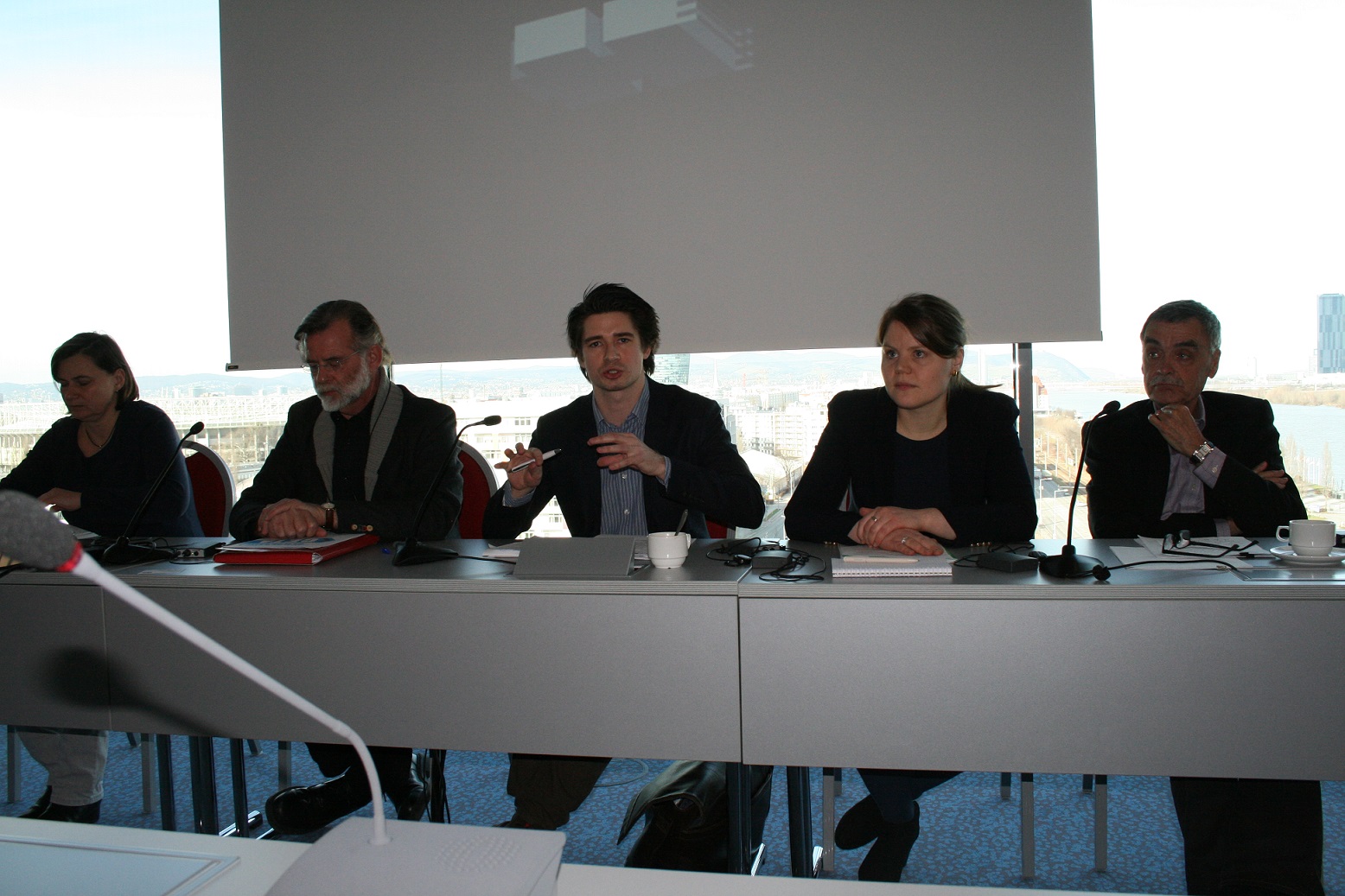Trade unionists gathered in Vienna to challenge the liberalisation of public services in TTIP and beyond
Published:
On 15 and 16 January 2015 ETUCE together with EPSU, AK and ÖGB are organizing a training seminar on how to challenge the liberalisation of public services in TTIP, CETA and TiSA.The event is taking place in the premises of ÖGB in Vienna and has gathered 100 trade union representatives from 25 different countries in order to discuss the pitfalls of and common responsive strategies to the free trade agreements that the EU is currently in the process of negotiating.
Thomas Fritz from Power Shift in Germany set the scene by giving an introduction to why trade policies are important to workers and public services. In a detailed reading of the consolidated CETA text, the de facto template for TTIP, Fritz outlined the many loopholes of the text in which public services and governmental policy space might be at risk. Furthermore, the trade union responses and strategies were presented and discussed by the panellists Jürgen Buxbaum (PSI), Louise Høj Larsen (ETUCE), Larry Brown (NUPGE) and Angela Pfister (ÖGB). All panellists highlighted dissemination of information to the public and raising the awareness of public authorities on all levels, from the local to the European, as essential tools in challenging the potential consequences for public services in TTIP, CETA and TiSA.
Moreover, participants gave an update on the realities in their respective countries in relation to public awareness, governments' attitudes towards privatization and what kind of actions trade unions and civil society are taking to put focus on the trade agreements' potential consequences. Generally, public awareness about the trade agreements is very low across countries, but many trade unions are cooperating internally and with NGOs to increase public interest and to put pressure on governments. However, in some countries other problems are more urgent, such as austerity measures and domestic political problems, so no attention is being paid to the loopholes of the trade agreements. Many national representatives called for pan-European action and initiatives.